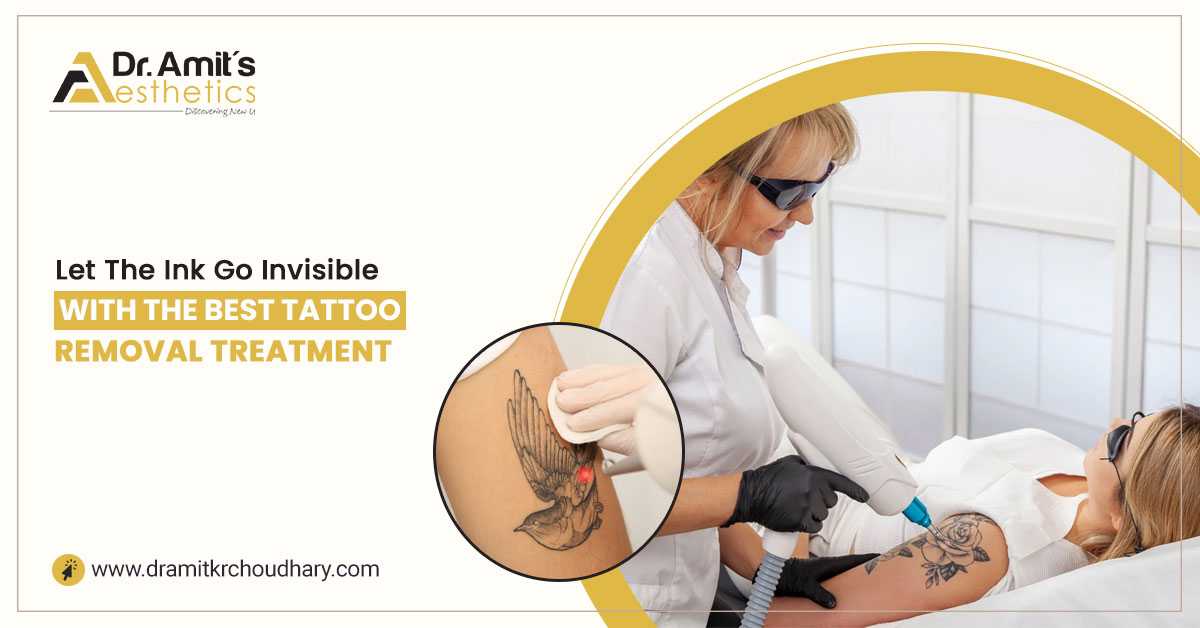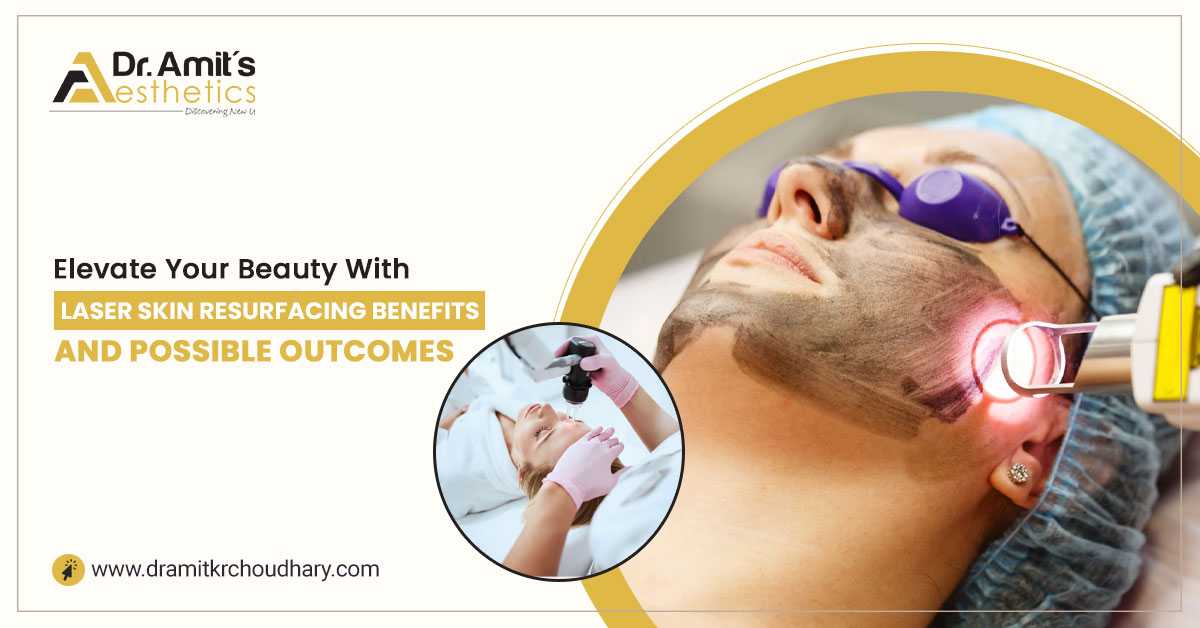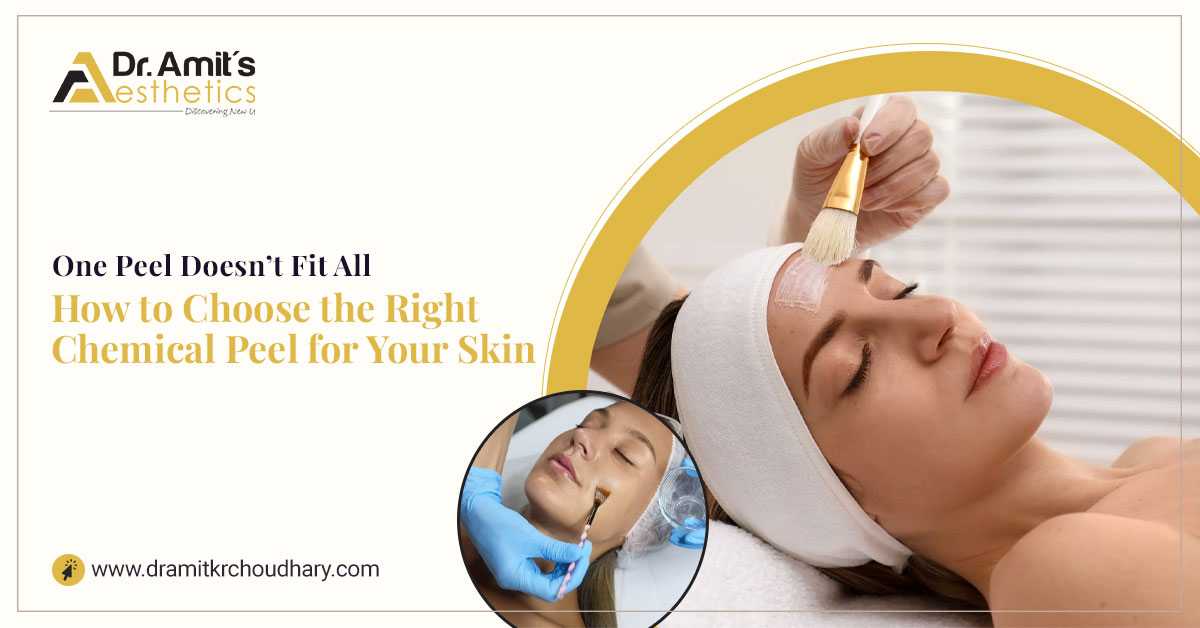Acne, scars, mild to moderate skin tone, fine lines, and moderate wrinkles can all be lessened or improved with chemical peels. Using a chemical solution, a chemical peel, also referred to as chemexfoliation or derma peeling, improves the look of your skin.
So, if you’ve decided to receive this treatment, it’s time to understand the right chemical peel for you. Get all-inclusive advice and support from the leading cosmetic surgeon, Dr. Amit Kumar Choudhary, for chemical peeling in Siliguri.
We'll simplify chemical peels in this blog, share their types, and talk about conditions treated by chemical peels, et al.
Chemical Peels and the Types
The top layers of the skin are exfoliated with a chemical solution in a chemical peel. It’s a skin-resurfacing technique. The reason here is to eliminate dead skin cells, stimulate cell division, and encourage the growth of new cells for smoother skin.
The three main varieties of peels are superficial, medium, and deep, and they differ in strength and composition.
- Superficial peels are ideal for minor discoloration and rough skin since they target the skin's outermost layer.
- Medium chemical peels address mild sun damage, wrinkles, and acne scars by penetrating deeper.
- For more severe skin conditions such as deep wrinkles and precancerous growths, deep peels are of great help, reaching the mid-to-lower dermis.
Determine Your Skin Type First
You should know your skin type since it’s vital before choosing any chemical peel treatment. Do you have sensitive, dry, oily, in combination skin? Or is your skin prone to acne? This will have a significant impact on how your skin responds to various chemical peels.
- Salicylic acid peels may work effectively for oily or acne-prone skin.
- Lactic acid peels are milder and may be more beneficial for dry or sensitive skin types.
- Skin that is prone to melasma or hyperpigmentation usually requires a peel that contains brightening agents like glycolic acid or mandelic acid.
- While TCA peels yield more noticeable results, they also take longer to recover from. They should always be given by a qualified expert.
Before beginning any chemical peel routine, you must get a proper skin examination from a dermatologist or other certified skincare specialist. Your cosmetic surgeon or dermatologist will confirm the best solution for your skin rejuvenation.
While choosing a chemical peel, those with darker skin tones need to exercise extra caution. Get optimum cosmetic skin care for advanced chemical peeling in Siliguri from a board-certified skin or cosmetic expert.
Uneven outcomes or post-inflammatory hyperpigmentation can be caused by some powerful chemical peel acids. Salicylic acid, lactic acid, and mandelic acid are generally safer options, but a patch test and expert advice are vital.
Skin Conditions Treated by Chemical Peels
These peels help improve the tone and texture of your skin, which can also be used to treat certain skin disorders. Your face, neck, or hands are the most often treated areas for chemical peels, which can help you in various ways:
- Fine lines around your lips or beneath your eyes, as well as wrinkles due to aging, sun damage, and genetics.
- Several forms of acne.
- Mild scarring.
- Uneven skin tone, freckles, sun spots, and age spots.
- Scaly, precancerous lesions known as actinic keratosis.
- Rough skin and a lifeless appearance.
- Melasma, or dark spots.
The right chemical peel can improve your skin, but the wrong one might cause burns, irritation, or problems with pigmentation. A consultation with a qualified skin care specialist is important before you say yes to this treatment. Your doctor will help you understand if chemical peeling in general is the right choice for you. Meet one of the best chemical peeling doctors in Siliguri for guidance.




